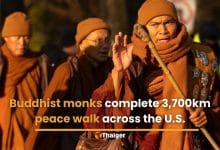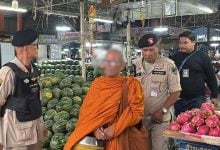How to become a Monk in Thailand at iMONASTERY Chiangmai
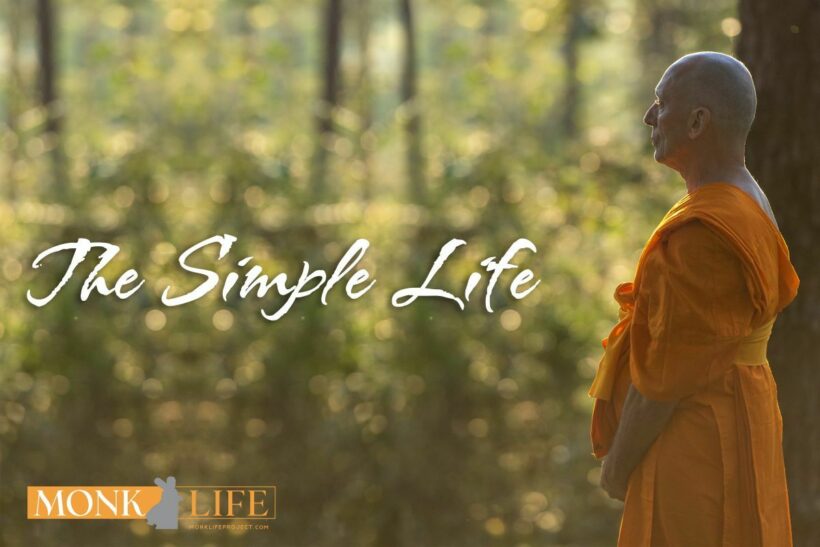
Press Release
Becoming a Buddhist Monk in Thailand used to be a difficult and long process but has now been made easier through the Monk Life Project. The Monk Life Project offers in-depth English Dhamma and Meditation instruction in a structured program that draws participants from many international countries.
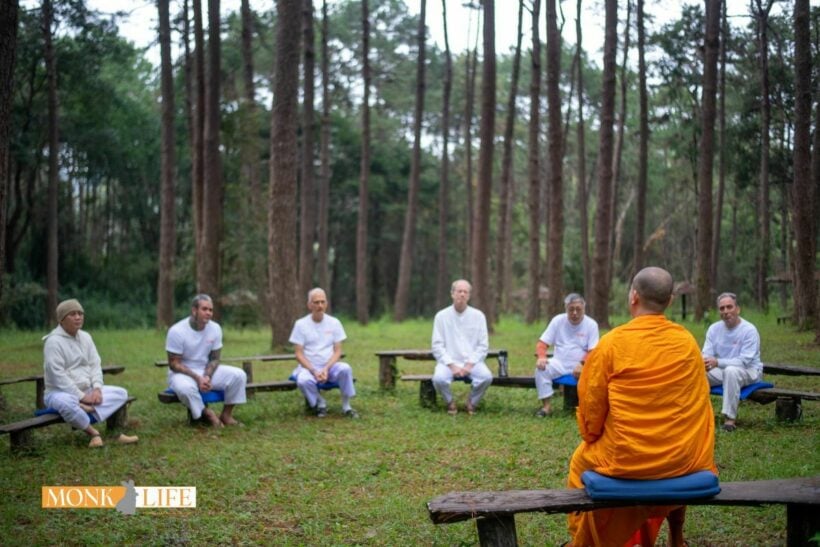
While in Thailand young men often ordain to make good Karma for their mothers, or as a kind of rite of passage before they get married, the true purpose of Monkhood is to pursue the end of suffering. The English-speaking participants in the Monk Life Project typically have encountered suffering in their lives and are motivated to free themselves of it and find inner happiness. But few are ready to commit to becoming a monk for life, or even for a year. Yet few lifelong monks ever expected to or intended to either! So, the 30-Day ordination is intended to give a taste of the Monk Life experience, with the option of extending for another month or staying further on a day-by-day basis.
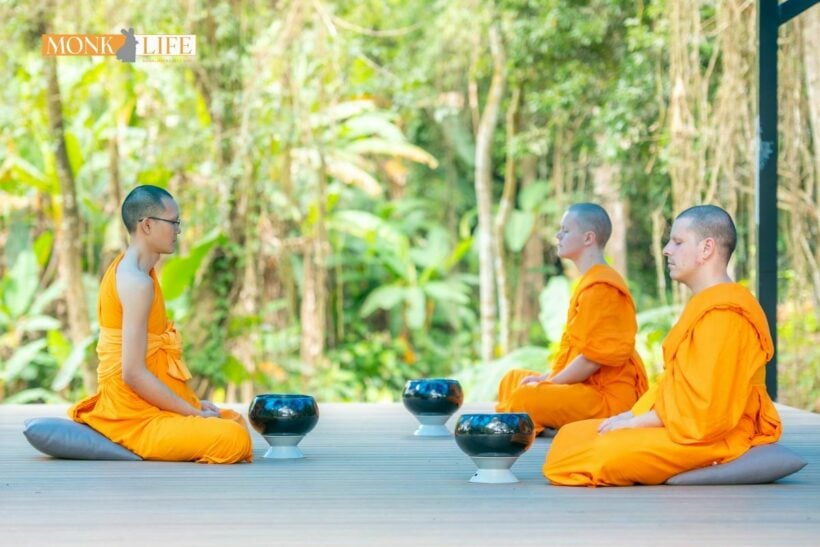
“We aim to allow people all over the world that are interested in Buddhism to experience the Monk Life in an easy way.” ChavanapunyoBhikkhu, Mentor and Interviewer for the Monk Life Project.
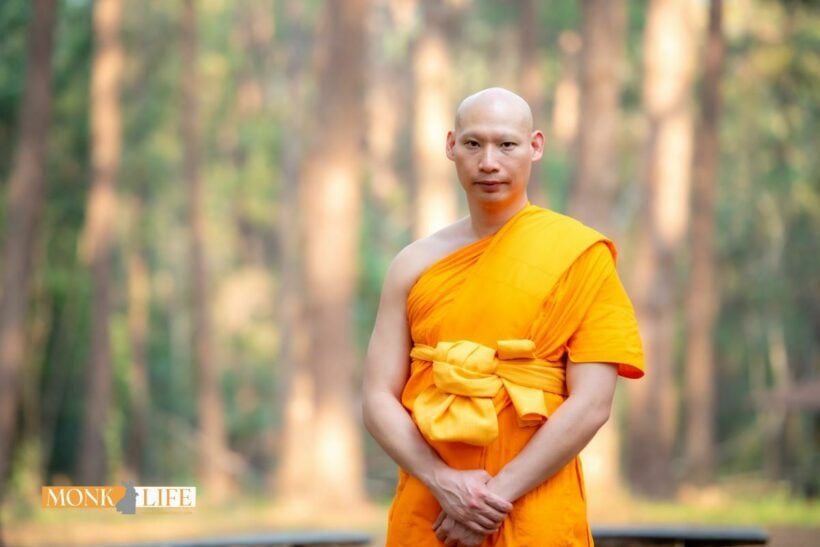
If you are intrigued by Monk Life, it’s recommended to read about the “Basic Principles of Being a Monk” and to understand what Monk Life is like. The Teaching Monks regularly share their wisdom on Youtube to help participants understand basic teachings. Supposing you have gained some faith and feel inspired to ordain, the next step would be to learn how to become a Monk in Thailand.

There are some necessary conditions for becoming a monk, chiefly physical and mental health. Ever since the Buddha’s time, in the ordination ceremony itself, 10 questions are asked to test the eligibility of the candidate, and many of those questions are regarding their health. Subsequently, the Monk Life Project requires a certification from a Health Check in your own country for diseases such as HIV, Tuberculosis, Covid double vaccination, urine check for illicit substances etc. It is strongly recommended that one gives up smoking some time before ordaining, as it would be very challenging to undergo the monastic training while going cold turkey.

While Monk Life is similar in some regards to Rehab, we should have purified ourselves from the coarsest habits before ordaining, and keeping the five precepts of abstaining from killing (even insects), stealing, sexual misconduct, false speech, and abstaining from taking intoxicants such as alcohol, cigarettes and recreational drugs. A criminal background check is required. Some familiarity or even experience with the eight precepts (which will be practised during the first week of the course) is ideal, which in brief include celibacy, abstaining from eating after mid-day, and abstaining from entertainment. Participants on a meditation retreat generally practice the 8 precepts as they are conducive to meditation, reducing some of the obstacles (wandering mind) in deepening one’s meditation experiences.

While meditation can indeed help reduce or alleviate mental health conditions such as anxiety and depression, it can also be contra-indicated for mental health conditions such as schizophrenia, psychosis, and epilepsy, which is one of the original 10 questions asked about in the ordination procedure. Other questions and requirements are to not be in debt (generally looked past for short-term ordinations but not for long-term ordination), to be free from governmental service, to have a parent’s permission (and/or wife’s), and in Thailand is only open to heterosexual males.

Lastly, while the program does accept people of older ages, one must be able to sit kneeling down for 10 minutes or more as during the ordination ceremony there are periods where one will need to kneel before the Preceptor, or senior monk, who grants you monkhood.

The good news is that during the meditations and Dhamma talks one can sit on a chair which is generally more comfortable for Westerners. A key principle throughout the program is the concept of Sabai, or being relaxed and comfortable.
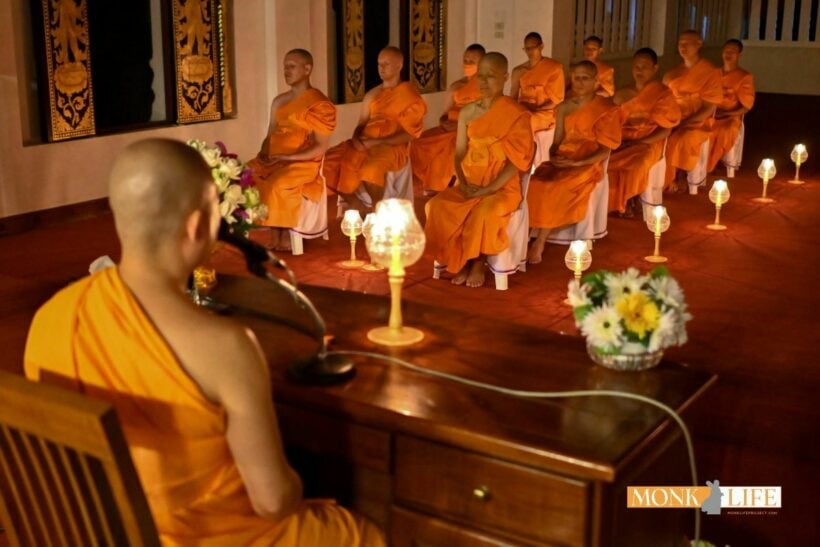
In keeping with the teaching of the four Sabbaya, the program offers both Thai and Western food, and after ordination experiences of Alms-round as well. This year the purpose-built iMonastery, a new International Forest Monastery, will be the training grounds.

The ordination will take place at a nearby local temple (Wat Ban Khun). The elevation produces cooler temperate weather which is ideal for meditation. iMonastery is located in a lush rainforest evocative of the Buddha’s time. Around 20 senior monks, trained for many years in intensive meditation, provide support in every way, with quality English language instruction from very experienced monks. Daily meditations and Dhamma talks are structured and progressive to quickly develop one’s wisdom and meditation experience.
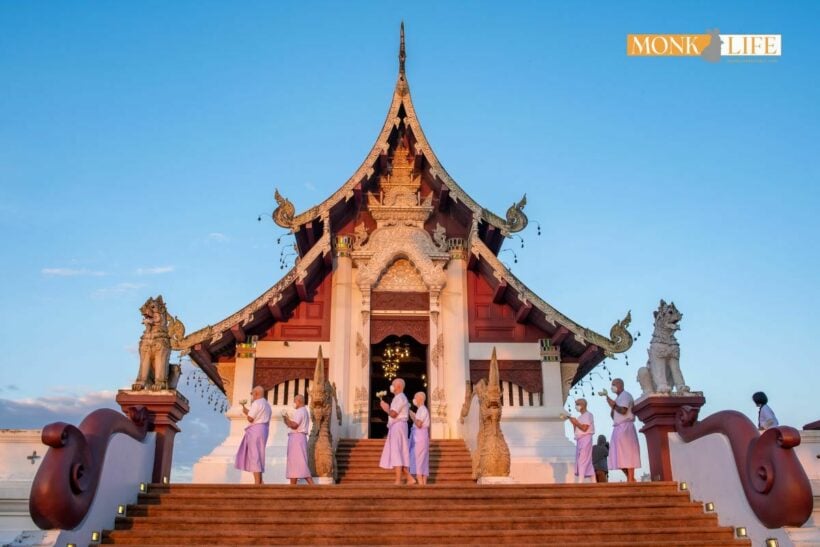
“This program has been specifically designed for foreign nationals, who are not able to speak or understand the Thai language. To that end, the instructors speak English fluently. Which is simply wonderful, so that we can fully understand and have the best learning experience possible. I came in understanding a little about meditation and the impact that it can have on our daily lives. I firmly believe that I would not have attained a deeper understanding, appreciation and the positive impact that it has made in my life.” – Kevin Todd Jackson (Saccabalo)
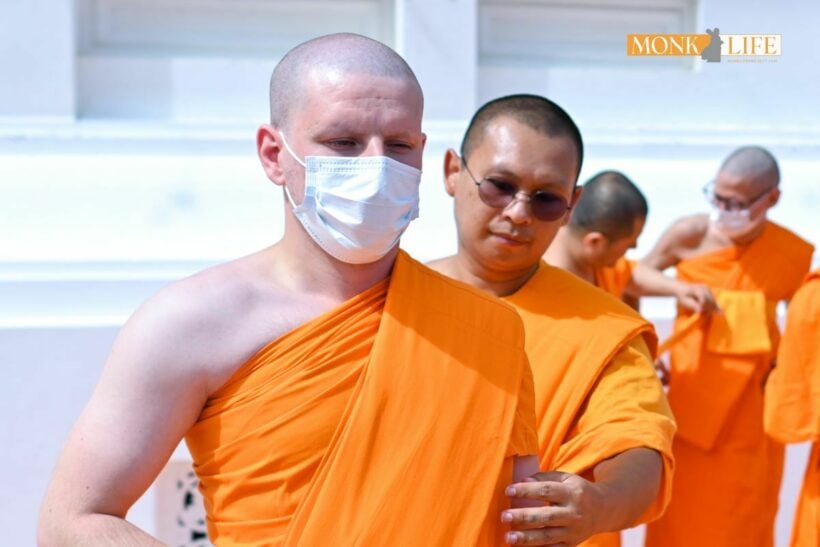
The application process begins with an online Google form, after which one will be notified to make a Zoom appointment for an interview with one of the monks. He will ask a variety of questions, mostly about health conditions eg. allergies, and to see if the applicant can accept the training rules and conditions, such as not having a phone or computer (deposited upon arrival, but the phone can be requested to be used when required eg. for ongoing travel purposes).
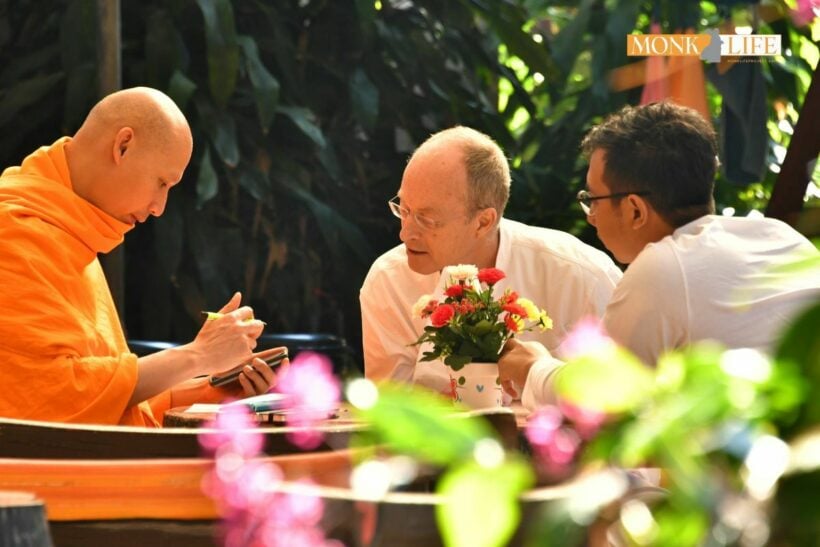
A couple of days later the applicant will find out if the application has been accepted, and if so they can proceed to make the deposit of 10,000 Baht or the full 17,500 Baht (around $500) which just about covers the costs of the program. If one intends to stay longer then some funds to cover the visa fees of the first year are also required. Some choose to stay an extra month, which is more focused on meditation with more hours per day devoted to that.
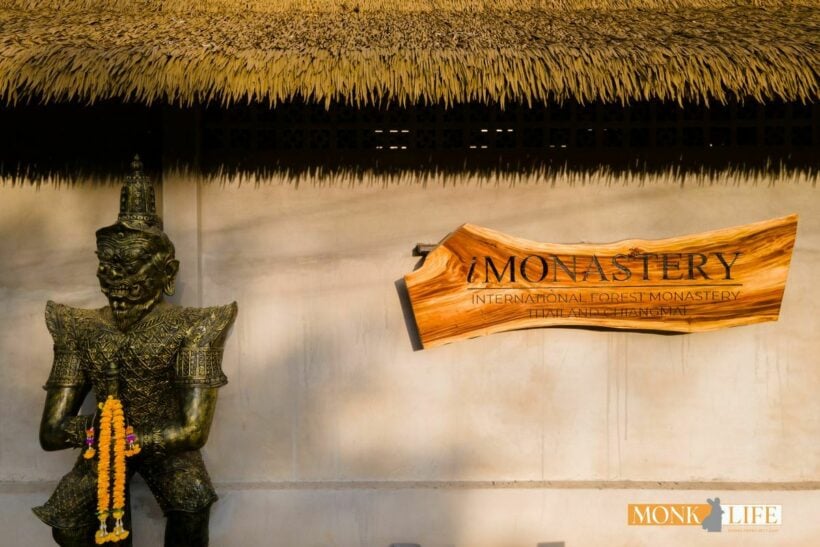
After the deposit is received an official invitation email is sent, which can be used in the visa application process for the 60-day Tourist Visa via your Embassy or Consulate. This is required to sufficiently cover the whole program and travel to and from Chiang Mai. As of now, the old Thai Pass required during the Covid era is no longer needed, but one should check the up-to-date entry requirements of Thailand. To be issued a Visa, they usually require a booked return flight. Some companies offer refundable flexible tickets, which is advised.
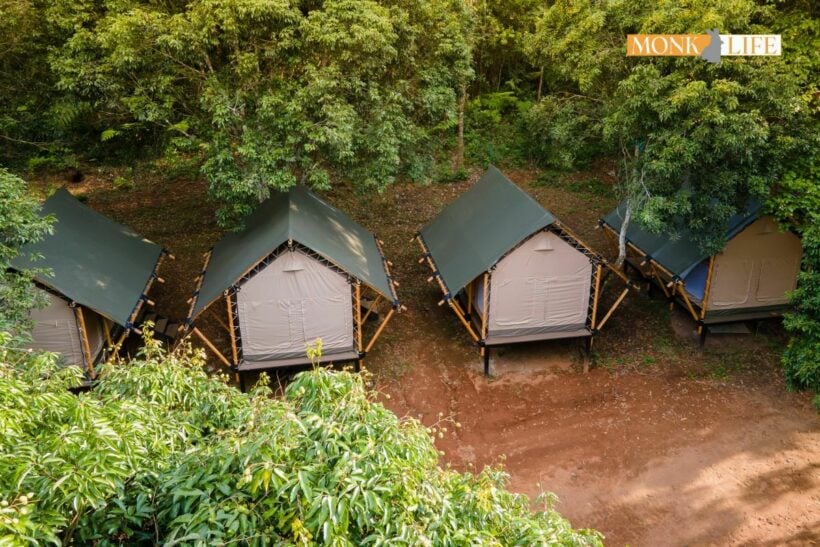
There will be a staff member who will be in contact with you during the process, with checklists, and a downloadable Pre-Ordination Preparation Guide with advice on preparing your body and mind for the program. Typically, booking 3-6 months before the program is a good balance between not being too far in advance so as to be derailed, or too soon to be hard to get the visa done in time.
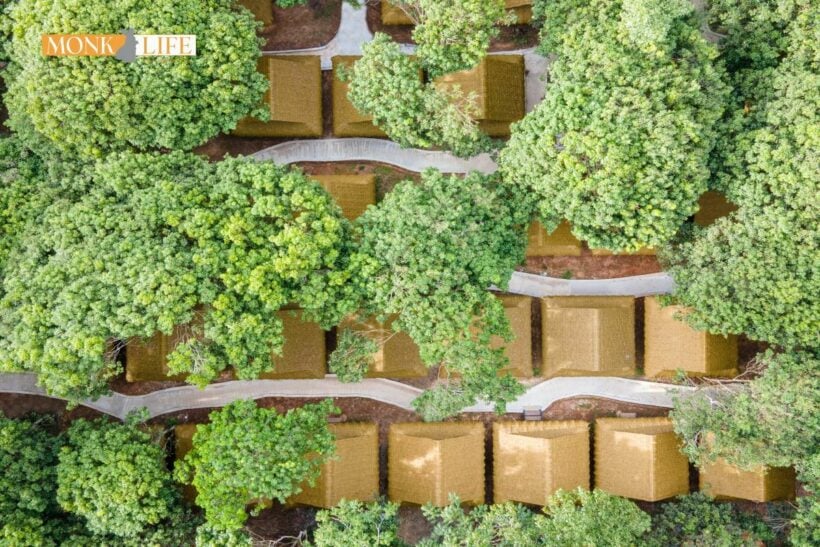
Upon arrival in Thailand, you will need to make your way to Chiang Mai (Northern Thailand) whether by plane, train or bus, but from there a minibus is offered to take participants to the training site. The first day will be checking in, a Covid test, depositing valuables securely, and receiving training items (such as Chanting book, and some clothing) all stored in a white box. You will need few, and specified, personal belongings, yet will discover that contentment with less is a key to inner happiness.
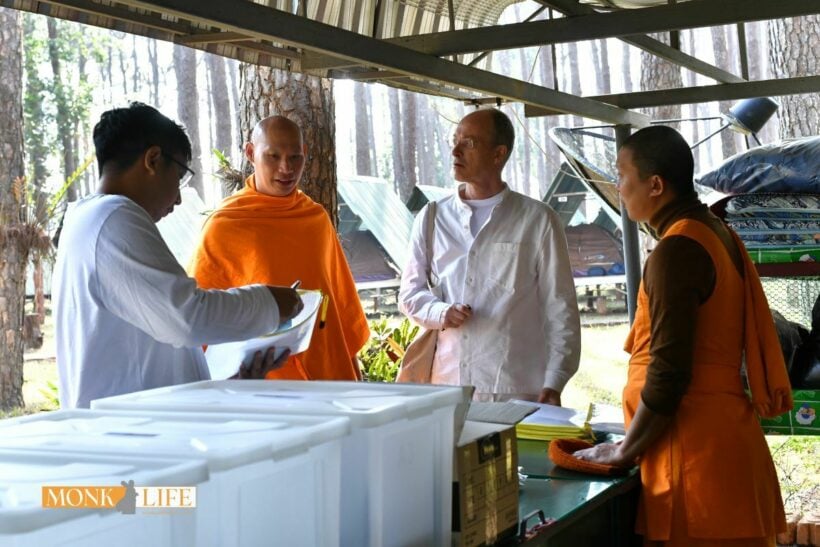
The first week will be spent learning Dhamma and meditation, practising Chanting and preparing for the Ordination. Then, around three days are spent at Wat Ban Khun to prepare for the ordination procedure, starting off with a heartfelt hair-shaving ceremony, and very touching Asking for Forgiveness ceremony, and the actual request for ordination as a novice monk and then full ordination to a monk in the same morning.
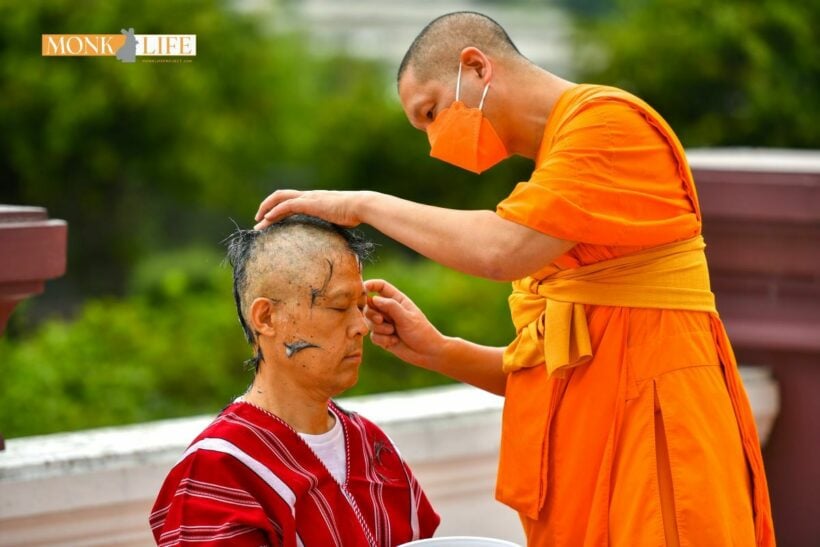
Traditionally, families attend these events and it’s considered hugely auspicious for them and in many ways more significant than a Wedding Day, but even if your family can’t attend, there will be no shortage of Thai supporters willing to be there for you and rejoice in your noble aspirations. After ordination time is spent at iMonastery to practice the Forest Monk Life with alms rounds in a graduated and balanced manner.
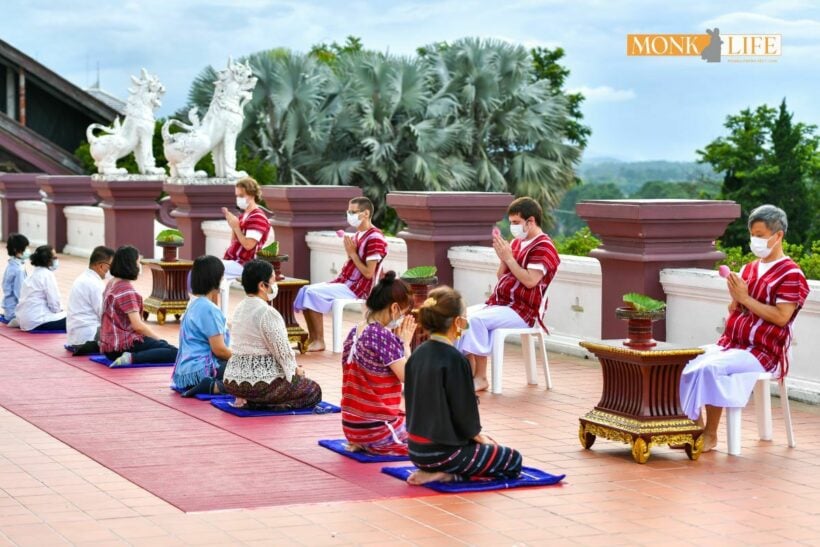
To become a monk is an extraordinarily great blessing and rarity, particularly for those from non-Buddhist countries, now that the door has been opened wide, why not come and see for yourself and taste the Dhamma and experience the Monk Life. Find out more about the ordination program by clicking HERE.
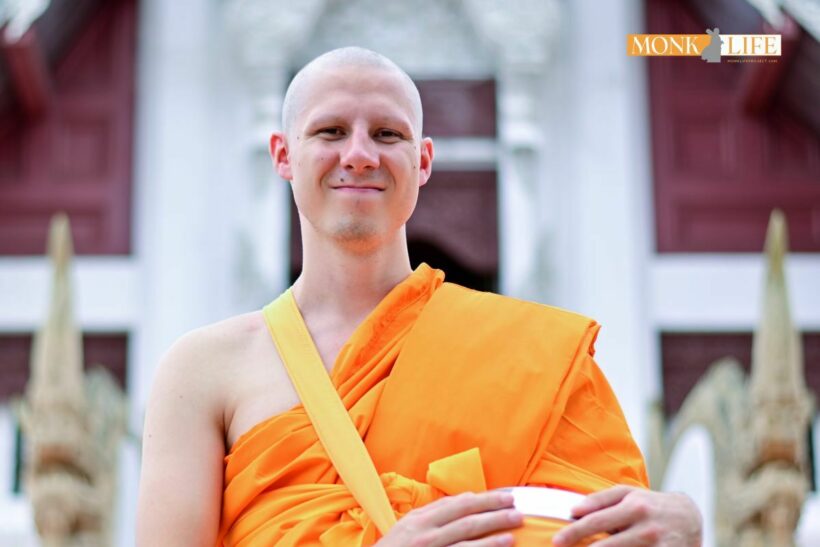
Find out more about our purpose-built training site iMONASTERY for international ordinants HERE
Latest Thailand News
Follow The Thaiger on Google News:
